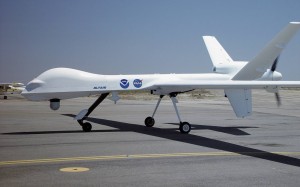J. Bradley Smith of Arnold & Smith, PLLC answers the question “What is the difference between a misdemeanor and a felony?”
The law is catching up with drones. If you plan to operate a drone in the state of North Carolina, you need to know about some new laws the North Carolina General Assembly passed this summer. The provisions regarding drones were included in “The Current Operations and Capital Improvements Appropriations Act of 2014,” also known as Senate Bill 744.
 Most of the new laws regarding drones go into effect on October 1 of this year. The laws add to North Carolina’s criminal code to establish, in effect, a class of “drone crimes.” Drones are called “unmanned aircraft” in the law, and are defined as “aircraft operated without the possibility of human intervention from within or on the aircraft.” The act excludes model aircraft from the act.
Most of the new laws regarding drones go into effect on October 1 of this year. The laws add to North Carolina’s criminal code to establish, in effect, a class of “drone crimes.” Drones are called “unmanned aircraft” in the law, and are defined as “aircraft operated without the possibility of human intervention from within or on the aircraft.” The act excludes model aircraft from the act.
It will become illegal on October 1 to use drones to conduct surveillance of a person, an occupied dwelling or private real property without consent. Private real property means land that is owned by private individuals or companies. “Occupied dwelling” refers to any houses or buildings that have people in them. The act prohibits photographing people using a drone without their consent if the purpose for taking the photograph is to publish it or publically disseminate it.
Law enforcement officers may use drones in ways the act prohibits. The act carves out exceptions for officers who are using drones to counter a “high risk of terrorist attack.” Officers can also conduct drone surveillance of areas within their plain view from places they have a legal right to be. They can use drones in connection with serving a search warrants. They can use drones when they have “reasonable suspicion of specified imminent circumstances,” and they can use them to photograph gatherings to which the general public is invited.
 Charlotte Criminal Lawyer Blog
Charlotte Criminal Lawyer Blog


